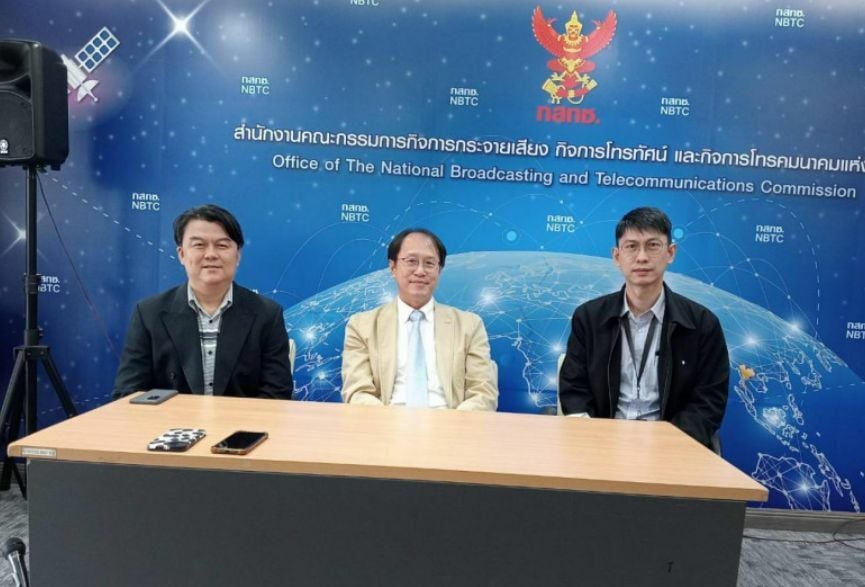5G network development: NBTC explores 3500MHz band allocation

The National Broadcasting and Telecommunications Commission (NBTC) is exploring the potential of allocating a section of the 3500-megahertz band to foster the development of a private 5G network. This move is aimed at encouraging practical applications across industries and enterprises.
Talks are underway between NBTC and various stakeholders including telecom operators, vendors, representatives from the Industrial Estate Authority of Thailand, and the Federation of Thai Industries. The proposal involves the allocation of approximately 100MHz from the total bandwidth of 400MHz on the spectrum.
NBTC commissioner, Somphop Purivigraipong, anticipates that this allocation could take place by the end of next year or early 2025. In a recent meeting with telecom networks and vendors including United Information Highway, Symphony and ALT Telecom Co, Somphop highlighted the importance of careful consideration around the allocation of this bandwidth.
The focus, as per Somphop, should be on actual demand and NBTC’s objective to foster a 5G private network for vertical industries. The regulator plans to primarily allocate the bandwidth to small and medium-sized vendors or industrial estate operators and enterprises within industrial estates.
This allocation is expected to materialise irrespective of collaborations in the deployment of solutions for a 5G private network to serve their operations.
Somphop advised against carrying out the allocation via auction, citing the high cost of spectrum investment as a potential obstacle to promoting a 5G private network. Various options for allocation were discussed with the parties involved, including a revenue-sharing model.
Developing 5G Network
In this model, licensees would be given a grace period to utilise the spectrum and begin paying a licence fee on a revenue-sharing basis to the NBTC once the grace period ends or they reach a break-even point in operations deploying 5G private network solutions.
While the NBTC cannot exclude major mobile phone operators from the allocation process, the primary focus remains on the industry’s 5G private network. The 100MHz portion may be divided into multiple licences, with some reserved for major operators interested, and the rest for other vendors and enterprises.
However, major mobile operators awarded licences for this 5G private network would be prohibited from using it to offer mobile phone services to the mass market or roaming with the existing 2600MHz allocation they acquired in 2020, reported Bangkok Post.
Somphop emphasised the importance of minimising spectrum cost for the allocated portion to encourage adoption and deliver real benefits for the country. He also noted that 5G adoption in the mass market has not yet fully exploited the technology’s capabilities, with its use largely confined to video streaming and supplementing 4G service.
The NBTC is also devising a management roadmap for the vacant portion of the 3500MHz band along with the 850MHz, 2100MHz and 2300MHz spectrums. The roadmap is expected to be ready by early next year. National Telecom currently holds the right to use the 850MHz, 2100MHz and 2300MHz bands, which are set to expire and be returned to the NBTC in 2025.
Latest Thailand News
Follow The Thaiger on Google News:


























